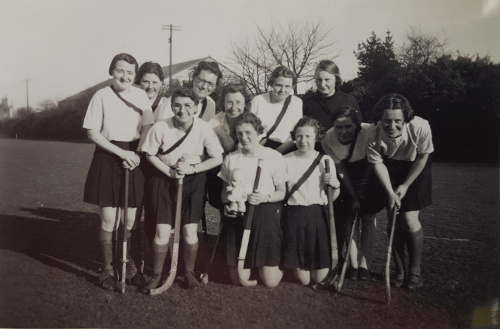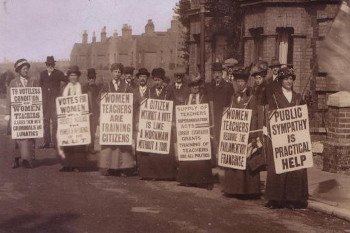To mark Women’s History Month, we’re highlighting some fascinating features, fantastic collections and online resources relating to women, their achievements and influence.
Archives Hub features
We have a wide range of Archives Hub monthly features focusing on women, including:
Black Georgians: Phillis Wheatley
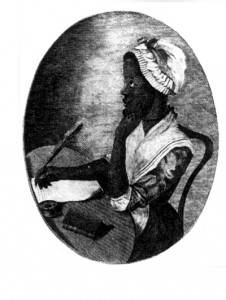
Phyllis was sold as a child servant to the all-white Wheatley family in 1761.
Susanna Wheatley, the mistress of the Wheatley family, recognised her extraordinary flair of intuitive intelligence, fostering the intellectual development of Phillis by allowing her to learn to read and write, learn Latin and to read the Bible.
She later became the first African-American woman to publish poetry.
Read the feature, provided by the Black Cultural Archives: https://blog.archiveshub.jisc.ac.uk/2016/01/04/black-georgians-phillis-wheatley/
The Imogen Holst archive: papers of a passionate and open-minded woman musician
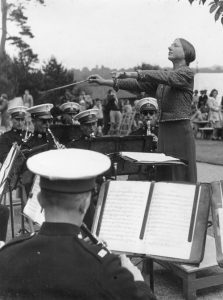
Imogen Holst (1907-1984) was the daughter of composer Gustav Holst, best-known for The Planets.
Holst, herself a composer, is perhaps best-known today as Benjamin Britten’s musical assistant, but she also had an exceptional, wide-ranging but lesser known career as, amongst other things, educator, conductor and music traveller.
Read the feature, provided by the Britten-Pears Foundation Archive: https://blog.archiveshub.jisc.ac.uk/2018/11/01/the-imogen-holst-archive-papers-of-a-passionate-and-open-minded-woman-musician/
The Legacy of Ahmed Archive and the Courage and Inspiration of his Mother
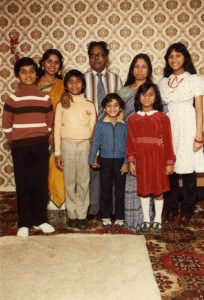
In 1986 Ahmed Iqbal Ullah was murdered by a fellow pupil in the grounds of his high school in Manchester. Very quickly, Ahmed the boy disappeared behind the story of his tragic death.
The story of his family and of his mother’s bravery and fortitude similarly became obscured.
Read the feature, provided by Ahmed Iqbal Ullah Race Relations Resource Centre: https://blog.archiveshub.jisc.ac.uk/2018/03/01/the-legacy-of-ahmed-archive-and-the-courage-and-inspiration-of-his-mother/
Pioneering women’s education at Bedford College
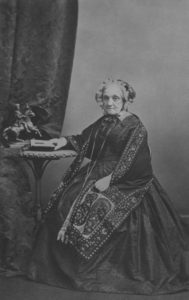
170 years ago Bedford College was opened in central London, becoming the first higher education college for women of its kind in the country.
It was the brainchild of Elizabeth Jesser Reid, who said it had been her dream since childhood to found a college for women.
Read the feature, provided by Royal Holloway Archives and Special Collections, University of London: https://blog.archiveshub.jisc.ac.uk/2019/09/30/pioneering-womens-education-at-bedford-college/
*** Explore more features focusing on women via our new subject category: ***
Pioneering and Inspirational Women
Equal suffrage demonstration in Lowestoft, Suffolk, 1914. NUWT Collection ref UWT/G/2/54. © Institute of Education Archives.
Collection highlights
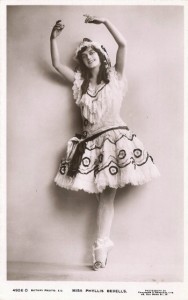
The Anita White Foundation International Women and Sport Archive, c1936- [ongoing]
In 2010 the University of Chichester decided to establish an archive on the international women and sport movement. This decision was based on the potential donation of documents from Dr Anita White and Professor Celia Brackenridge, two individuals associated with the university who had been centrally involved in the leadership and development of the movement since 1990.
Material held by: University of Chichester Special Collections
Full description: https://archiveshub.jisc.ac.uk/data/gb2970-ws
Papers of Georgiana Cavendish, Duchess of Devonshire (1757–1806)
Georgiana Cavendish (née Spencer), Duchess of Devonshire (1757–1806) is well-known as a style icon and also for her personal life. However, she was also actively involved in the Whig party. Following the resignation of William Pitt in 1801, she was instrumental in getting Fox and the Prince to settle their differences, as well as reuniting the different Whig factions into a force that could be co-ordinated. Whilst Pitt returned as Prime Minister in 1804, following his death in 1806, the new government – the ‘ministry of all the talents’ – largely consisted of the coalition that Georgiana had helped to build.
Material held by: The Devonshire Collection Archives, Chatsworth
Full description: https://archiveshub.jisc.ac.uk/data/gb2495-df12
Elouise Edwards Collection, 1970-1999
Elouise was born in 1932 in Guyana, South America. She travelled to England in 1961 to join her husband Beresford Edwards. They settled in Manchester and soon became active in the struggle against inequality and racism that existed at that time. They challenged racist attitudes and campaigned for the needs of people from overseas. This developed into a lifelong fight for equality. Elouise Edwards was instrumental in celebrating Black culture, battling racism and developing vital community resources in Moss Side. She was awarded an MBE for her amazing contribution. Elouise also has an African Chieftaincy. She was nominated for her work with African people in Manchester and the honour was bestowed by the Nigerian organisation at the British Council.
Material held by: Ahmed Iqbal Ullah Race Relations Resource Centre
Full description: https://archiveshub.jisc.ac.uk/data/gb3228-5
Papers of Emily Wilding Davison, 1905-1989
As a campaigner for Women’s Suffrage, Emily is arguably most famous for her death. She joined the Women’s Social and Political Union in 1906, soon becoming involved in a long series of arrests, imprisonments and releases after force-feeding. She managed to enter and hide in the House of Commons three times between 1910 and 1911, and was the first to embark on a campaign of setting fire to pillar-boxes. On the 4th June 1913, she tried to seize the bridle of the King’s horse running at the Derby. She received head injuries and never recovered consciousness, dying on the 8th June. Her funeral was preceded by a large funeral cortege that became one of the iconic events of the campaign for Women’s Suffrage.
Material held by: Women’s Library Archives
Full description: https://archiveshub.jisc.ac.uk/data/gb106-7/ewd
Online Resources
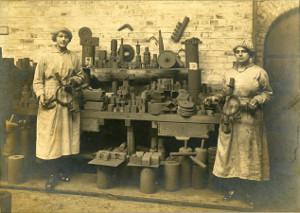
The North’s Forgotten Female Reformers: Women’s suffrage and fight for reform and change throughout the UK, provided by Newcastle University Special Collections and Archives.
History to Herstory, provided by West Yorkshire Archive Service, Wakefield.
The Zandra Rhodes Digital Study Collection, provided by the University for the Creative Arts Archives & Special Collections.
Florence Nightingale Digitisation Project, the collected letters of Florence Nightingale are held by several partner organisations in the UK and USA.
Discover more collections
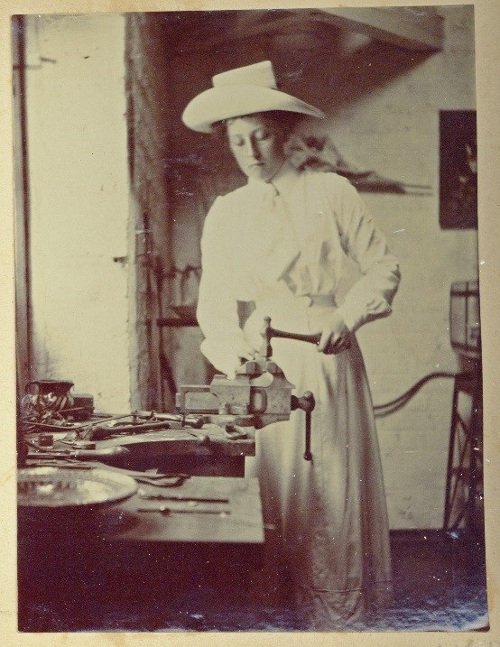
There are many ways to locate collections about women using the Archives Hub. Searches you could try include:
For help on searching, see our tips and examples.
